Best Farm Investments for the Small Farmer
If you own a small farm, there is no shortage of stuff competing for your time and money. This includes new opportunities, new tools, and (sometimes) new toys.
So what farm investments will pay you back for the time and money you put into them? Here's a few of my plans for investing in New Terra Farm, to get us ready for the farm challenges I see in the near future.
Weather-proofing your farm. You may have noticed we're having a lot of weather in recent years. Every time I turn on the news, there's a 'once in a century' rainstorm, or a '300-year flood'. I think the old norms and traditional weather patterns are changing, and the farmer better get ready for the new world of turbulent weather.
At New Terra Farm, we've always used raised beds, row cover, and drip irrigation to try to offset flooding, freezing and drought. But for several years now, due to the cold, wet spring, it seems we're later and later getting into the garden.
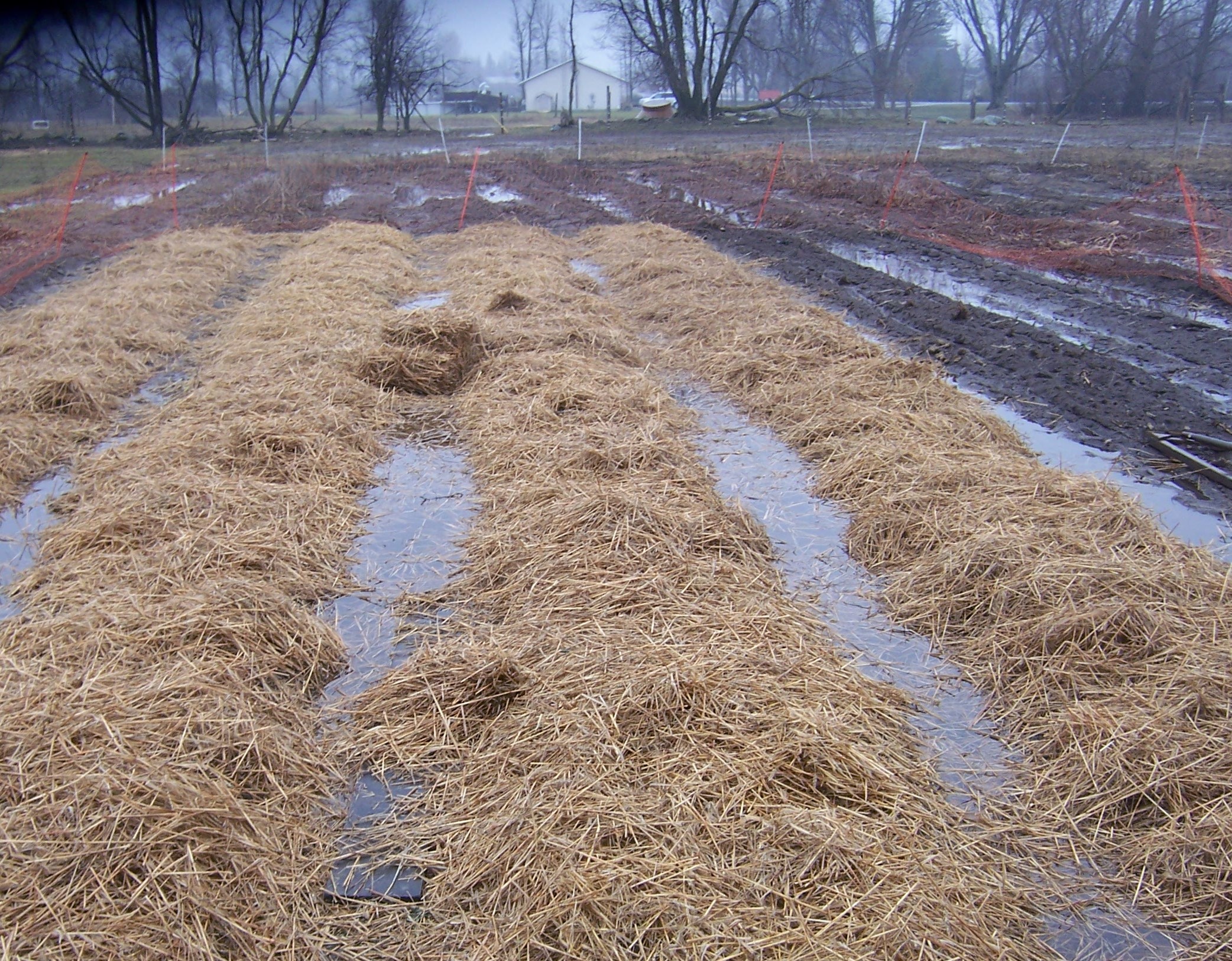 Raised beds can protect your crops but sometimes its too wet to work
Raised beds can protect your crops but sometimes its too wet to workSo we went a step further, and put up a lean-to greenhouse for starting and sheltering transplants, and a larger poly-tunnel hoop house on rails a la Eliot Coleman.
This has really paid off in terms of extending our season, and is also a major benefit in being able to start farming even if the season is cooler and wetter than usual.
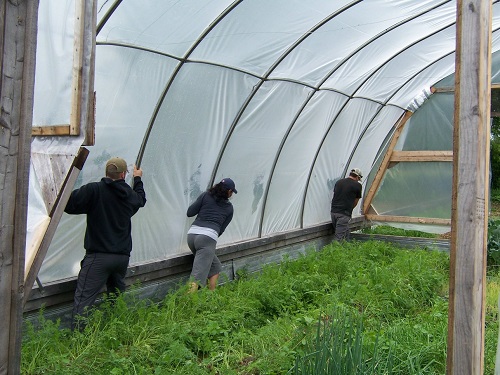 Some volunteers kindly helping me slide my hoop house on rails to its second location
Some volunteers kindly helping me slide my hoop house on rails to its second location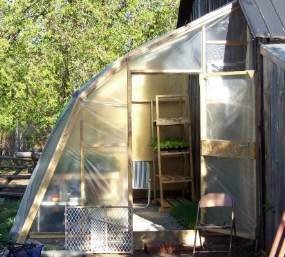 We built this lean-to in a single weekend. It was a great farm investment of both time and money.
We built this lean-to in a single weekend. It was a great farm investment of both time and money.Ensure your water supply. I think
building a farm pond or other backup sources of water -e.g. a cistern -
is one of the best farm investments you can make. Seems like any place
not experiencing flooding this year is suffering from drought. Do what
you can to ensure a secure supply of water for your crops and animals.
Farm investments in appropriate technology and techniques. We find it's getting
increasingly tough to find good farm help. At the same time we're not
getting any younger, and 8 or 10 hours a day of 'stoop labour' is losing
its appeal as we progress through our fifties.
We took a big chunk out of labour by hiring a neighbour to till our garden and make raised beds using his equipment.
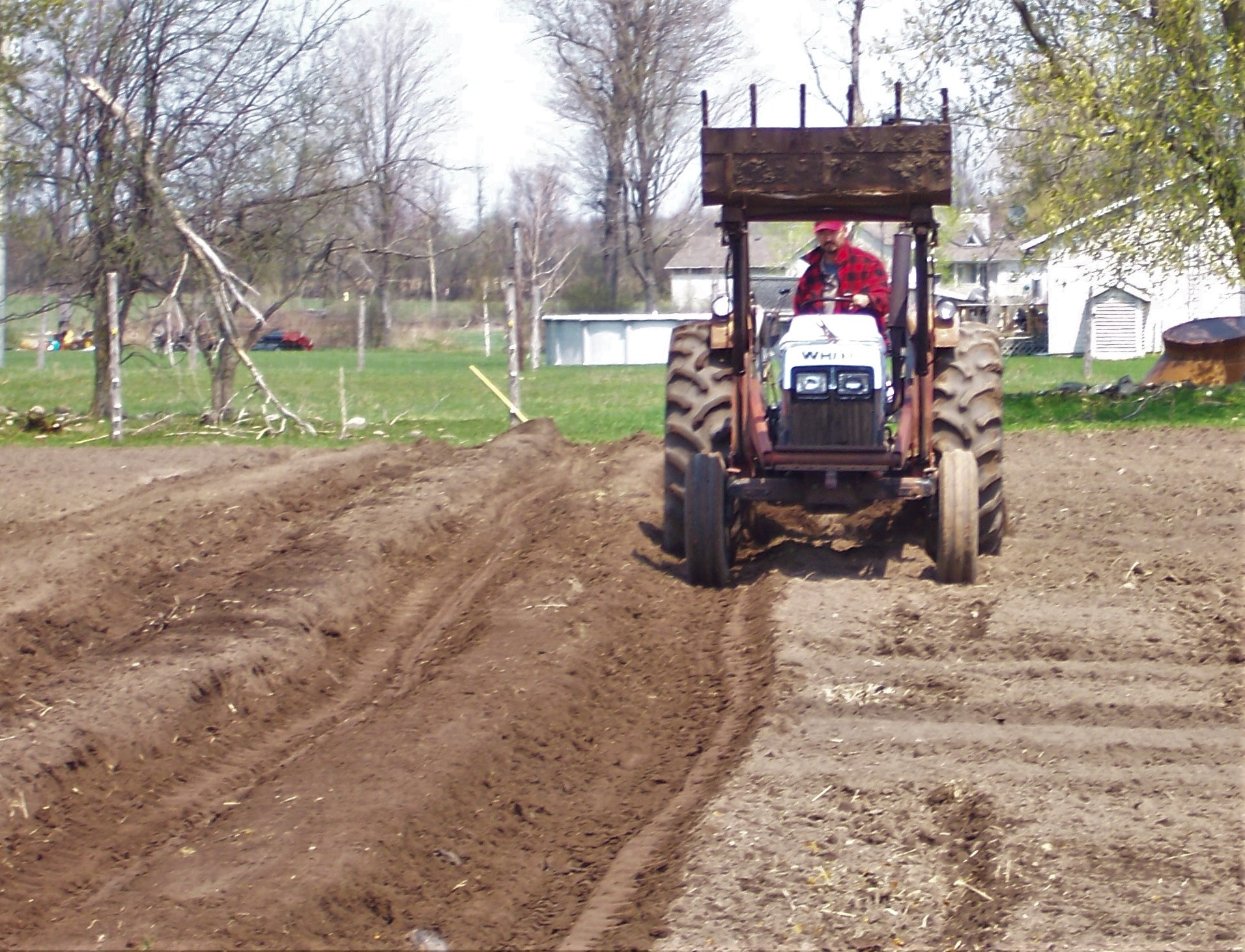 Dan tilled and shaped 200 garden beds for us at a cost of less than $500.
Dan tilled and shaped 200 garden beds for us at a cost of less than $500.Since having access to this equipment
gives us new capabilities, our growing techniques changed too. I increased my use of plastic
mulch film, to help suppress weeds, warm soil, and help
retain moisture.
After experimenting with plastic mulch for a few seasons, I've come to
the conclusion that I prefer the regular poly film type over the
'bio-degradable' film that breaks down in the soil. There's a couple
reasons for that:
- The regular film will last for two or three seasons, if installed properly. This means less work and less expense in the long run. I can plant lettuces through it one season, then beans the following season, and finish with peppers in season three, all without having to re-make the raised bed or re-install the plastic.
- When I am finished with the plastic it can be removed and recycled. The bio-degradable stuff breaks down and I don't know what it leaves behind in the soil. I can get pretty close to 100% of the other stuff out of the garden when necessary.
- Soil life doesn't seem bothered by either type. Whenever I pull up the plastic mulch I see lots of worms, bugs and soil life of all kinds. Doesn't seem to be harming anything.
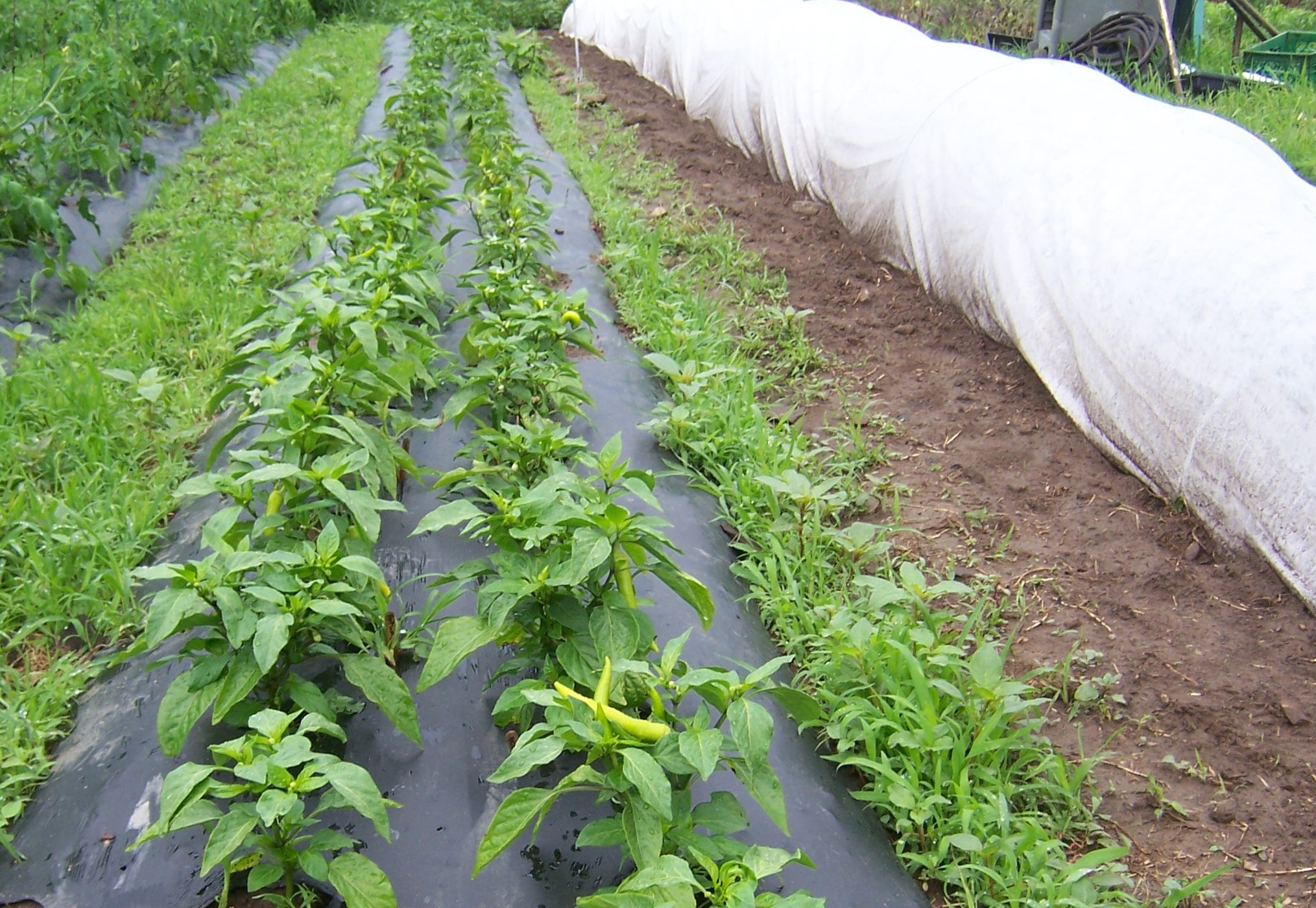 We use a LOT of plastic film mulch and row cover. Rows are spaced so we can cultivate with our walk-behind tiller.
We use a LOT of plastic film mulch and row cover. Rows are spaced so we can cultivate with our walk-behind tiller.Invest in energy-intensive goods. Anything that requires a lot of energy - e.g. steel - or a lot of petrochemicals - e.g. plastic - to produce is only going to get more expensive. This includes things like fencing wire and steel t-posts, hand tools, tractor parts, and poly film for hoop houses and mulch.
We plan to buy a lifetime supply of these
items over the next couple years. If stored out of sunlight poly film
will last indefinitely. And wire fencing and t-posts will last decades
if kept out of the wet. I think these farm investments will have a
better payback than RRSPS or IRAs; they make good barter items, too.
Invest in perennial crops. I mentioned we are changing our
growing methods to suit the capabilities our new technology will give
us. We are also adding perennial crops like grapes, brambles and
nut and fruit trees to our crop mix.
Once established, these crops will
produce for many years, with much less maintenance than annual vegetable
crops. Less work, more crop diversity, as farm investments go that's a
win-win.
Invest in yourself. Knowledge is the ultimate farm investment. I spend thousands of dollars a year on improving myself;
(some might say I have a long way to go;-)
This means not just learning more about gardening and farming and animal husbandry, but also learning about setting goals, how to stay motivated, how to market on the Internet, how to bounce back from failures, and in general how to be a happier, more focused, and more fulfilled individual. I believe this is one of the best farm investments I can make.
Free 2-Page Business Plan Template
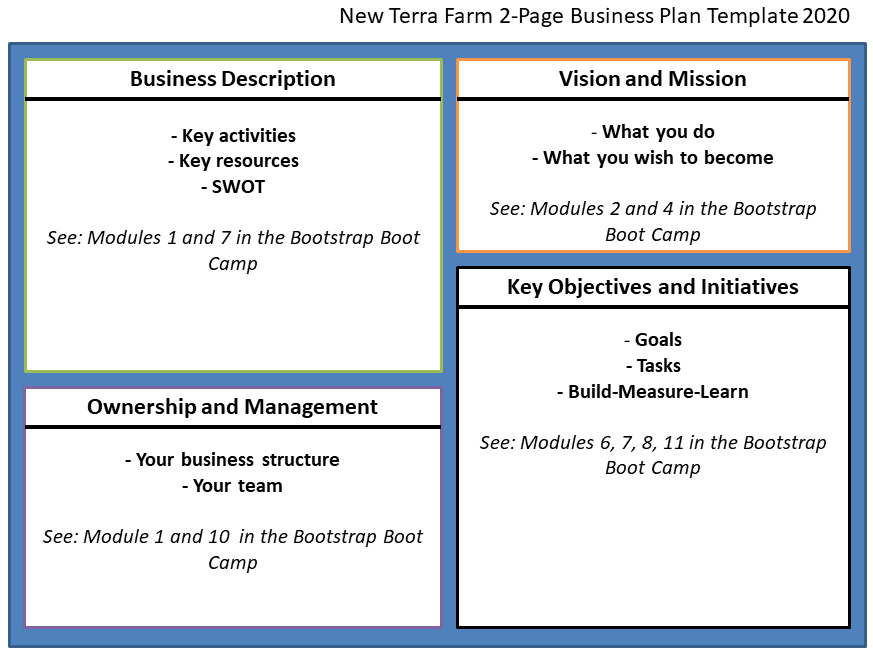
"A dream without a plan is just a wish"
If you aren't planning for success, what ARE you planning for? Download my free 2-page business plan template and get methodical about your business success.
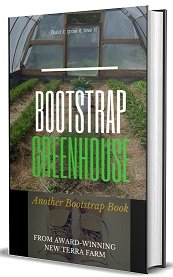 Three easy-to-build greenhouse designs
Three easy-to-build greenhouse designsNew for 2020: My Bootstrap Greenhouse book has plans and instructions to build and use my three styles of small greenhouses.
If you want a greenhouse, but thought they were too expensive or too hard to build, this is the book for you.
$17 only from New Terra Farm.
Or get Bootstrap Greenhouse as part of my Complete Start Farming Pack and save 60%!
- Home Page ›
- 5 Acre Farm ›
- Farm Investments






